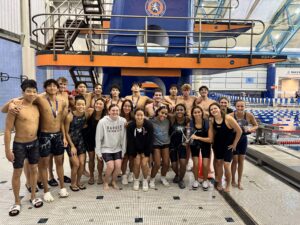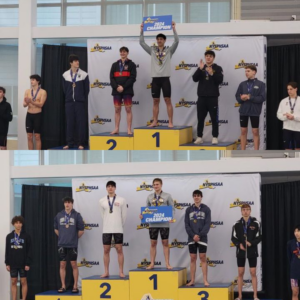Maturation (Part One)
This week’s article found a long time ago addresses the concept of maturation. What hopefully is easy for you and your swimmer to understand is that kids grow and mature physically over different periods of time. The article suggests that “early maturers” may not even have perfect stroke or technique but are able to out-perform given their early physical development. The challenge parents may have with these kids is trying to keep their accomplishments in perspective early on while keeping their kids interest later when their peers catch up. The challenge with the “later maturers” is helping them keep a longer term perspective while looking for that incremental improvement along the way, and working on stroke and technique in the meantime.
By the way, I never believed physical stature told the whole story anyway. We can all think of examples of great athletes who may not have been as physically gifted as the next. When I was growing up the world record holder in the 400 IM, arguably one of the toughest events in swimming, was held by Ricardo Prado who stood ~5″5′.
The second part of the article addresses strategies to deal with the early and late maturers. The first point to highlight is “to keep in mind that early success does not predict later success”. Studies show that early champions are not always the same kids later in life. What is more alarming in the studies is that many kids stop sports all together after enjoying early success, due in part to the feeling of inadequacy or disappointment after their peers catch up.
Learn, Love, Excel…the Badger approach is meant to accommodate both the early and later maturer. It is also meant to be a comprehensive approach to nurturing a swimmer’s physical abilities while cultivating more and more interest and, finally, intense dedication to swimming…over time. As your kids progress in the coaches’ estimations, they are handed up from group to group. Obviously this very often coincides with age and related physical development. Learning the right techniques obviously helps all swimmers as they grow. Learning to love swimming and learning how to train will help both early and late maturers to get through their respective challenges mentioned above. Once your coach believes your swimmer is mature enough mentally and physically to handle the tougher practices, they move on through the programs and begin to excel. This last step comes at different times for different kids. I will talk about this in Part 2 next time.
Some commentary for what it’s worth – It’s really hard and potentially very unfair to yourself and your family to put too much emphasis on comparing your kids to others, especially at younger ages. Good news/bad news – Ours is a sport that is measured by times, instantly recorded on Meet Mobile and in the US Swimming and metro logs. The good news is we can measure and track improvement in black and white. Our kids are not subject to playing time dictated by a subjective coach of a team sport. The bad news is (or better put – the perspective to keep in mind), is that comparing times is not always apples to apples. Obviously times are tracked by age group, but we all know even within a tight two year age group that kids all grow at different times. This is a huge contributing factor to speed, especially at the age group level.
Keep your emails and questions coming…mikecbadger@gmail.com. Thanks!




